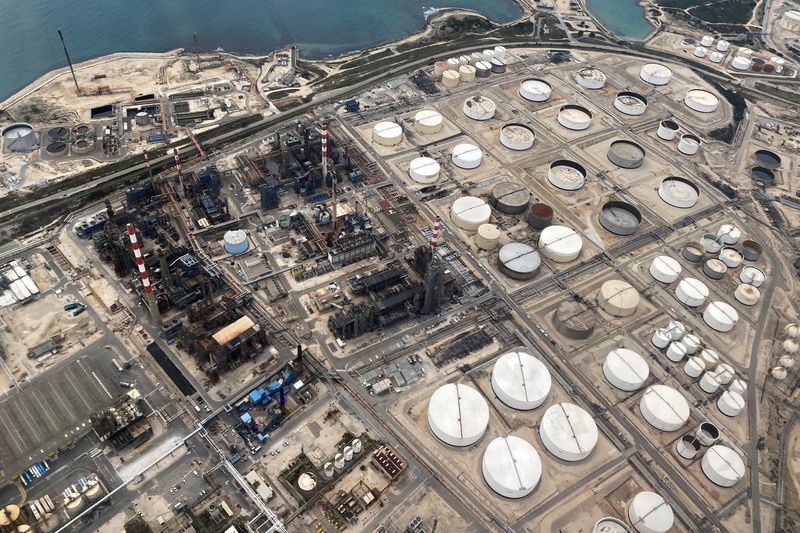
By Ahmad Ghaddar
LONDON (Reuters) -Oil prices firmed on Friday but were on track to end the week lower, as weaker U.S. employment data raised concerns over the health of the world’s largest oil consumer, and renewed ceasefire talks in Gaza eased worries about supply.
Brent crude futures rose 67 cents, or 0.9%, to $77.89 a barrel at 0932 GMT, while U.S. West Texas Intermediate (WTI) crude futures inched up 69 cents, or 1%, to $73.70. Brent futures have fallen about 2% so far this week, while WTI lost nearly 4%.
Both benchmarks hit their lowest since early January this week, after the U.S. government sharply lowered its estimate of jobs added by employers this year through March.
That sparked concern about a potential recession in the U.S. hurting demand in the top oil consuming nation, but some analysts say that was an overreaction to the jobs revision.
The market will be closely monitoring a keynote speech by Federal Reserve chair Jerome Powell scheduled for 1400 GMT on Friday, with the market widely anticipating a rate cut from next month.
“Alluding to a quarter point cut in September is something already priced in and will receive a lukewarm reaction,” PVM Oil analyst John Evans said.
“But a double-decker half point percentage cut goes against how the Fed wishes to manage a controlled move away from tightening,” he added.
Morgan Stanley said in a note on Friday that a drawdown in oil inventories has provided oil prices with some support.
“For now, the balance in the oil market is tight, with inventories drawing approximately 1.2 million barrels per day in the last four weeks, which we expect will continue in the balance of [the third quarter],” the bank said.

Recent data from China, the top oil importer, has pointed to a struggling economy and slowing oil demand from refiners. A renewed push for a ceasefire in Gaza between Israel and Hamas has also helped ease supply worries and weighed on oil prices.
U.S. and Israeli delegations started a new round of meetings in Cairo on Thursday to resolve differences over a truce proposal.
(Additional reporting Sudarshan Varadhan in Singapore; editing by Jason Neely)
This post is originally published on INVESTING.






